Virtual Reality Lab
The Mechanical Engineering Virtual Reality (MECH-VR) Lab is located in Rougeou Hall on the UL Lafayette main campus. This lab specializes in advanced visualization techniques for engineering training and education specifically in the fields of alternative energy and renewable resources. 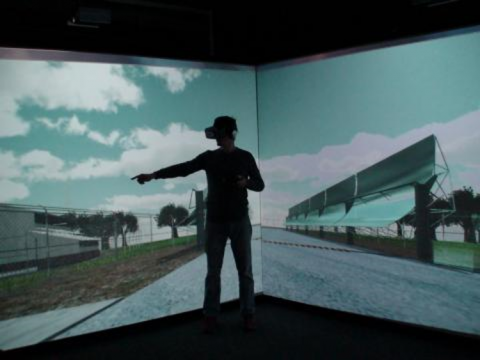
The lab includes a Cave Automatic Virtual Environment (CAVE) with 3D projectors and full body tracking. This immersive virtual reality environment enables virtual tours and interactive group design.
The current primary focus of the lab utilizes several utilizes several Head Mounted Displays (HMDs), such as the Oculus Rift, HTC Vive, Oculus GO, and several mobile HMDs to display development of these immersive applications for education and training of engineering products and processes.
The MECH-VR Lab enables the visualization of complex utility data, such as power flow, the effects of outages, cyber-attacks, intermittency of renewables, distributed generation, and microgrids.
Converting 3D CAD Models to Virtual Reality
MECH-VR Lab personnel supervised by Dr. Kary Ritter can assist students and faculty to convert a 3D CAD model they are studying into a form that can be viewed in the three wall 150 inch screen CAVE environment, or in the fully immersive Oculus Rift headset.
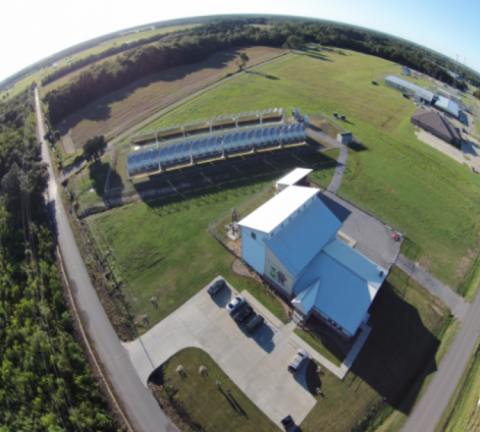
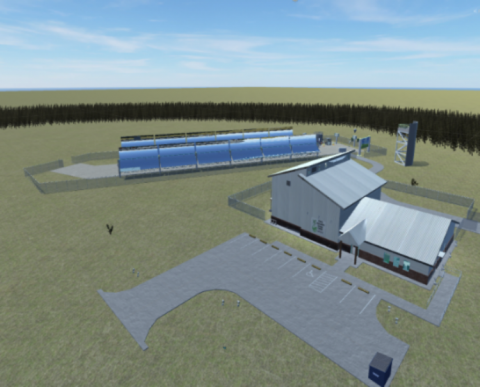
The Virtual Energy Center (VEC) uses a scale model of the actual concentrating solar power plant at the START Lab.
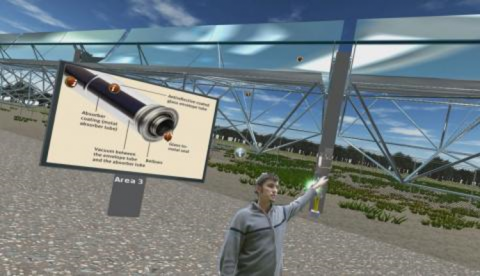
The VEC application is a remotely guided collaborative networked VR environment for learning about concentrating solar power.
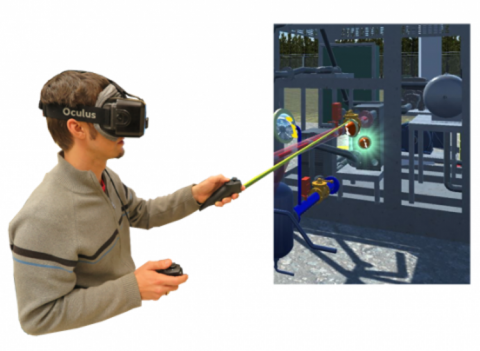
Student Interacting with Virtual Environment with Pipe Flow Animation.
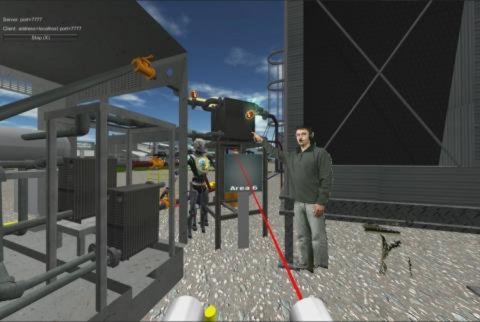
Remote Guide Explaining the Condenser
Using PV-VR
PV-VR is an application that uses a scale model of a real photovoltaic (PV) power plant for educational interactive tours in virtual reality (VR). The actual PV solar power plant is virtualized and virtual representations of all the objects in the plant are inserted into the application.
PV-VR takes users on a guided educational tour that allows them to interact with the various technologies to faciltate virtual hands-on learning. The virtual tour is guided by a teacher avatar that explains each technology and initiates animations and interactive educational games with constructive feedback to reinforce learning.
PV-VR allows users to learn about solar power technologies and how power is produced, converted and transmitted.
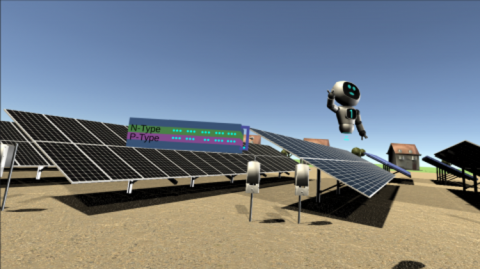
PV-VR Introduction Screen
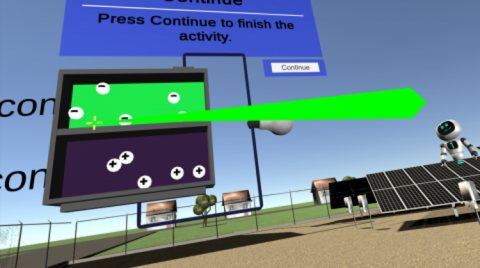
Photon Shooter Activity
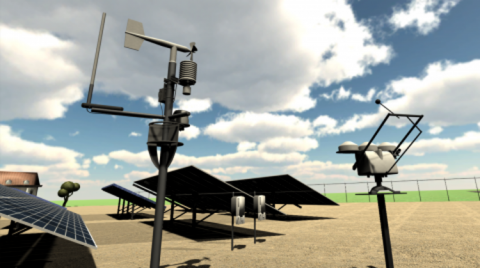
Meteorological Station and Radiometer
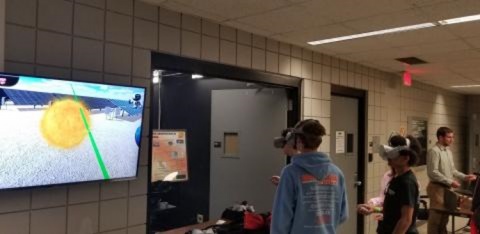
PV-VR was loaded on mobile VR-headsets for students and faculty at the University of Louisiana System Day at the state capitol in April of 2019.
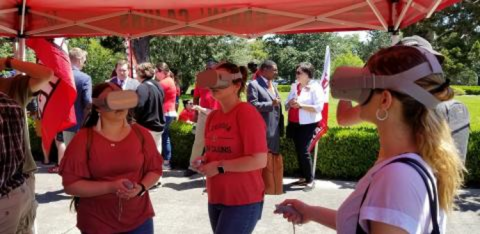
A second version of PV-VR was created using 360 degree panoramas of the PV power plant.
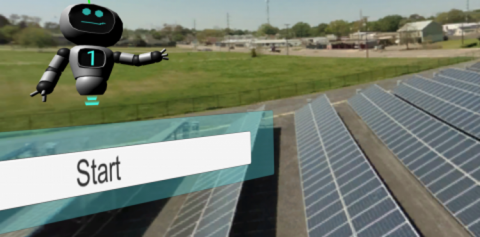
Overview Activity
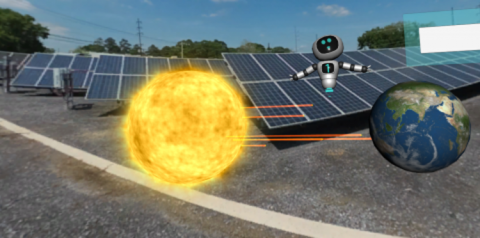
Solar Resource Explanation
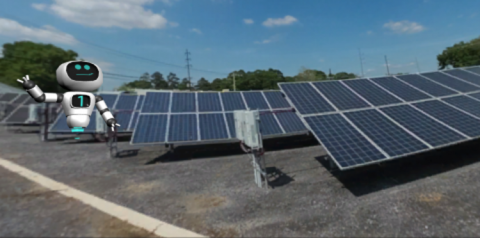
Polycrystalline Module Activity
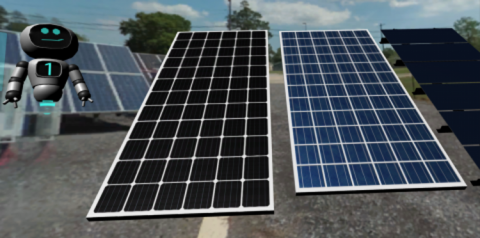
Module Selection Activity
